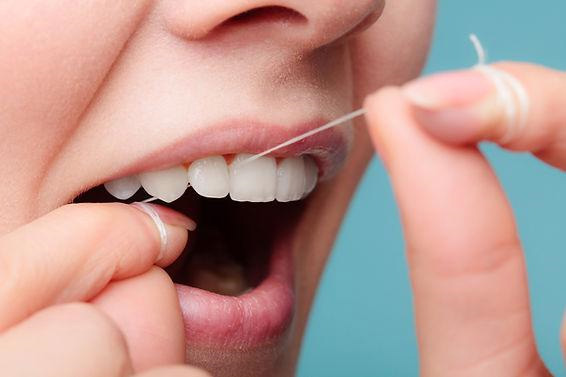
We all know that brushing is key… but why is flossing so important?
The ultimate clean for your teeth is to brush twice a day and floss at least once a day. This helps remove the plaque and food that’s beyond your toothbrush’s reach, according to the American Dental Association. It doesn’t matter when you floss. Do it at night, do it in the morning, or do it after lunch… just do it!
Want to avoid minimal scraping at your next checkup? Flossing loosens the particles that brushing misses. It also removes plaque, and in so doing prevents the buildup of tartar. While it’s easy to brush plaque away, you need a dentist to remove tartar.
To take full advantage of the benefits of flossing, you need to first learn the correct way to floss.
Proper flossing involves wrapping the floss in a “C-shape” and covering as much surface area of the tooth as possible. You should cover about half the diameter of the tooth from each angle. Make sure to move the floss up and down along the outer surface and under the gum tissue. This way, the floss will clean plaque from both the outer and inner surfaces of your teeth, as well as beneath the gum tissue.
Regular flossing can also help limit the development of cavities, but you must make it a habit. According to a 2014 study, proper dental flossing relies greatly on self-monitoring and its correct use.
Not only can proper oral hygiene help keep your breath fresh and your teeth and gums healthy, it may also help prevent periodontal disease. Periodontal disease, in turn, is a risk factor for cardiovascular disease and diabetes. Because of this, practicing good oral hygiene may help keep more than just your mouth healthy.
Next time you reach for your toothbrush, remember to reach for your floss as well. The simple habit of flossing at least once a day may improve not only your smile, but your overall health, too!
